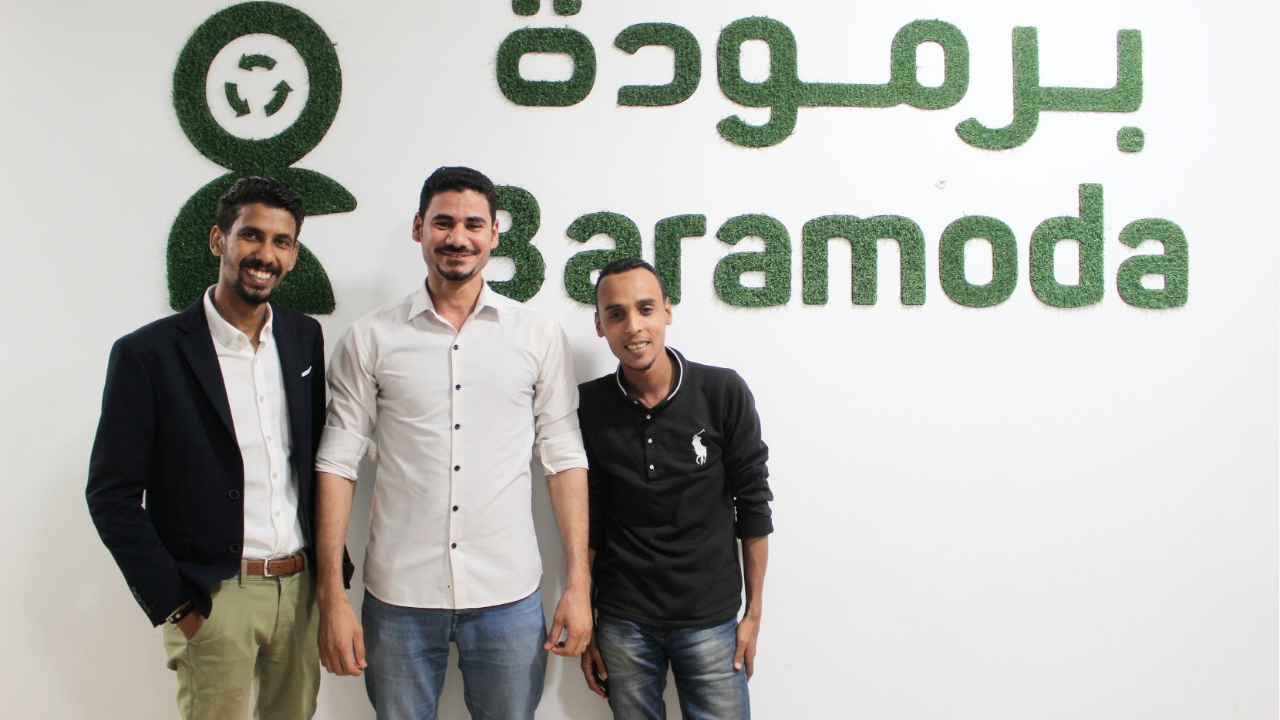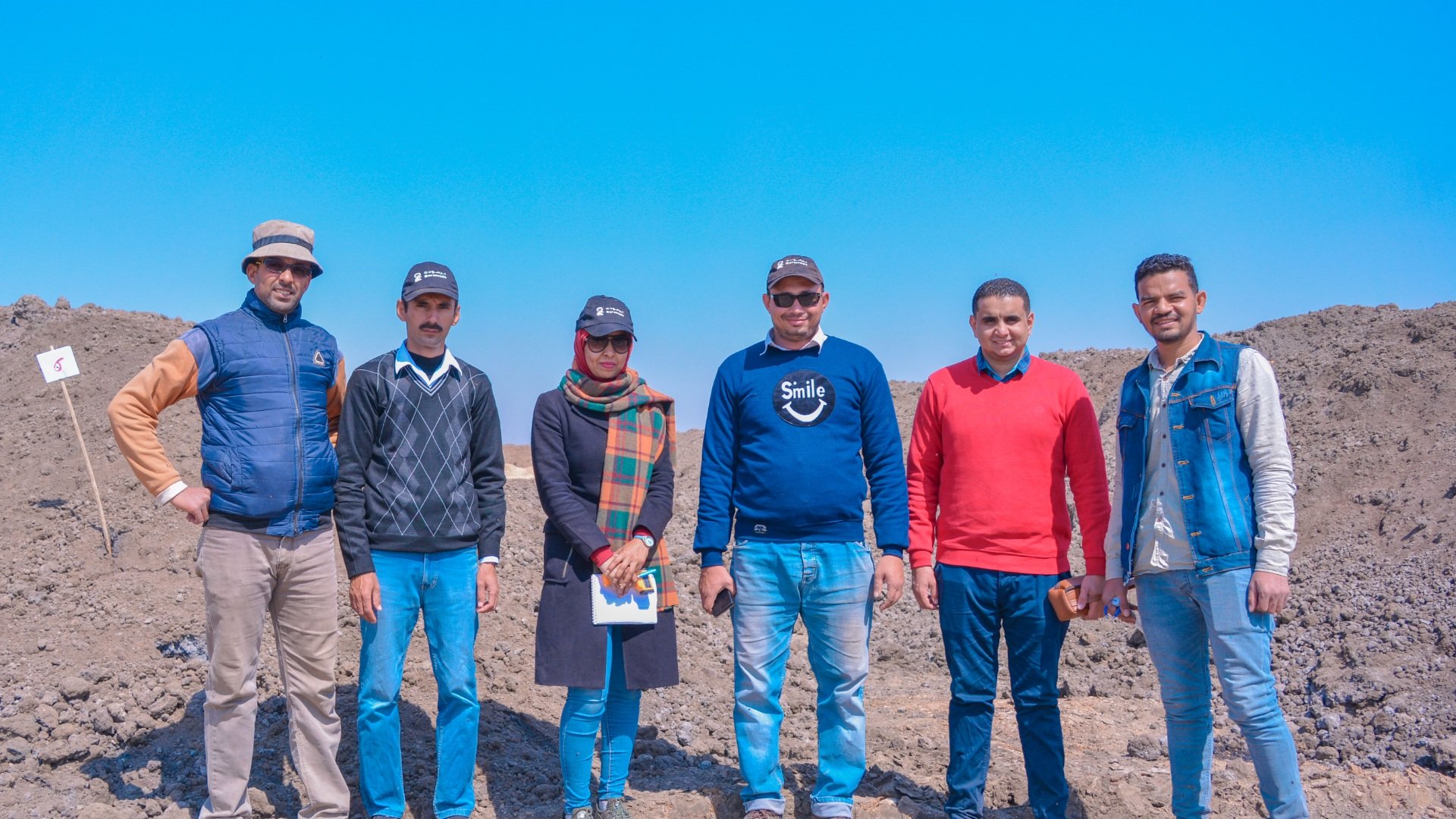An Egyptian agritech startup tackles the problems of farm waste and water shortages through innovative and sustainable biofertilisers, writes Keith J Fernandez.
The black cloud hovering over Egypt knocks 1% off the nation's GDP while directly contributing to respiratory disease, the fifth most common cause of death in the country. Urban and industrial reasons aside, the winter smog is partially caused by the burning of agricultural waste, such as rice straw, cotton stalks and sugarcane bagasse. For Mostafa Elnaby and his friends, it was a case of one man’s trash being another man’s treasure as this farm waste sparked the idea for organic fertilisers.

Baramoda, the agritech company Elnaby and business school classmate Mohammed Abu Zaid established in 2016, turns sugarcane waste into compost for organic farms. Its product replaces the chemical fertilisers widely used across Egypt and increases crop yields with up to 30% less water usage. This is a significant saving in a country where 85% of the annual water resources are diverted to agricultural activities.
“We started our journey for environmental conservation in 2017 by recycling 800 tonnes of agri-waste, and now, in 2020, we can recycle 15,000 tonnes per month. By the end of the year, we expect to contribute to the cultivation of more than 12,000 acres of agricultural land,” says Elnaby, Baramoda’s CEO. “By 2025, we want to recycle one million tonnes of waste to cultivate more than 250,000 acres of agricultural land for organic farming.”
Having bootstrapped with $500, Elnaby and his colleagues – all in their late twenties – have got this far with prize money and angel funding of $400,000. The team now wants to raise $1 million and expects to be able to announce new backers by the third quarter of this year. That money will go towards improving soil quality and crop yields in Egypt.
The southern governorate of Qena, where Baramoda is based, produces about a third of the country’s sugarcane, according to official data. Not only is this one of the world’s thirstiest crops, but processing it into sugar leaves behind a residual filter mud. Since it is often burnt to produce bricks, the continuous fires have both environmental and health consequences, Elnaby notes. Egypt generates 38 million tonnes of agricultural waste annually, only 12% of which is recycled. The rest is incinerated, its smoke contributing directly to air pollution and respiratory health issues.

HEALING EGYPT’S SOIL
The compost Baramoda produces helps raise the biological activity of the country’s agriculturally suitable soil, which is a mere 4% of the total. Fine-tuning the recipe took the company two full years of research and development, Elnaby says. Now it can customise its compost in line with soil and water analysis, crop variety and potential market (domestic or export).
“Through testing and analysis, we can determine which nutrients a particular area needs. Our development team then searches for the most suitable agricultural waste to replenish the soil while extending all the basic nutrients the crop requires.”
The use of compost rescues agricultural land damaged by the excessive use of chemical fertilisers. Elnaby explains:
“Our compost is free of any pathogens or weed seeds, so it is safe to use in soil, unlike chemical fertilisers. In an experiment using Baramoda's compost on a zucchini crop, productivity increased by 10%, we were able to reduce chemical use by 50% and water use by 30% while cutting agriculture costs by 20%.”
Having started with 12 farms spread over 160 acres in Qena in 2017, Baramoda now works with 109 farms over 2,000 acres across five governorates.
“We are targeting to reach to 500 farms in 12 governorates with 14,000 acres under cultivation area by the end of 2020.”
The next steps could involve using rice and cotton waste in Egypt while expanding the formula across the Middle East. The region has about 84 million date palms, principally across Egypt, Iraq, Saudi Arabia, Iran, Algeria, Morocco, Tunisia and the UAE, all producing significant amounts of waste in the form of dry leaves, stems and seeds.
“A typical date tree can generate up to 20kg of dry leaves per year,” Elnaby says. “These countries also face a problem with agricultural fertility due to their desert nature and insufficient water for irrigation. Using date waste to produce an organic product that solves these problems could be the best solution to preserve the environment.”
